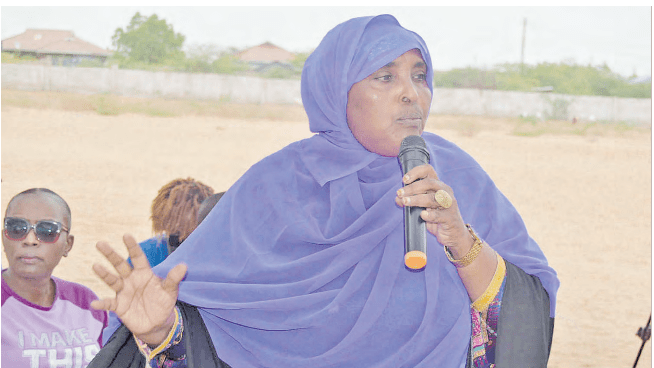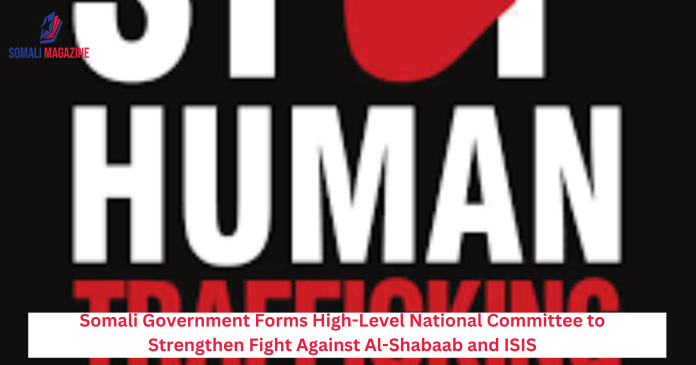Facebook Twitter (X) Instagram Somali Magazine - People's Magazine
Young people in Garissa have been warned to stay alert and avoid falling into the traps of human traffickers who are targeting them with false promises of better lives abroad.
Speaking at a community engagement meeting with local security officials, Rukia Mohamed, who works with the Garissa County Peace Movement, raised concerns about an increasing number of cases where young people are being smuggled from Kenya to Libya. The forum was organized by the International Organization for Migration (IOM).
According to Rukia, these traffickers are part of a well-connected and organized group that operates between Kenya and Libya. They take advantage of desperate youth by convincing them that there are “greener pastures” overseas, leading them to risk their lives on dangerous journeys.
“We are losing a lot of young people because they believe there’s a better life outside Kenya,” Rukia said. “I want to encourage both the youth and their parents, especially in the northern region, to focus on the opportunities we have here at home. Let’s work to improve our own communities instead of risking everything for uncertain futures.”
She also revealed that some parents are going to extreme lengths to support their children’s illegal migration, including selling off their land, cars, or other valuable property to raise money. Sadly, once these youth leave the country through illegal routes, they often end up being kidnapped and tortured. The traffickers then demand ransom money from their families, causing even more hardship.
“By the time these kidnappers ask for money, the families have nothing left to give, because they already sold everything to send their children abroad,” Rukia added.

Mohamed Noor Dahir, a respected elder from Iftin ward, echoed these concerns. He explained that traffickers often trick young people into believing they can go abroad without a passport or paying any fees. They present it as a free and easy route to Europe or the United States.
“This issue has hurt many families in Garissa. It’s heartbreaking,” Dahir said. “We believe some people are secretly recruiting young people, lying to them, and taking them through illegal routes across Sudan and the Sahara Desert into Libya.”
Once in Libya, many of these youth are captured and tortured. The traffickers record videos of the victims being abused and send them back to the victims’ families to demand ransom money.
Dahir explained that the money is usually sent through a system called Hawala. This is an informal money transfer system that doesn’t involve banks or any physical exchange of money. Because of this, the transactions are untraceable and anonymous, making it difficult for authorities to follow the money trail or catch the criminals.
“The system is outside the normal banking structure, so it’s hard to track who is behind these crimes,” Dahir said.
Dekow Ahmed, the chief of Bulla Iftin location in Garissa Township, said things are starting to improve thanks to ongoing community meetings with security officials. He noted that awareness among residents has increased and that reported cases of trafficking are beginning to decrease.
Ahmed also encouraged people to follow legal processes when they want to travel abroad. He noted that the government has now made it easier for citizens to get legal documents such as national ID cards and passports.
“The right way is always the best way,” he said. “We want our youth to seek opportunities, but they must do it safely and legally.”
Authorities and community leaders continue to urge parents and youth to remain cautious and informed, and to avoid the dangerous paths offered by human traffickers. The community is being reminded that while dreams of a better life are valid, risking everything for false promises is never worth it.

